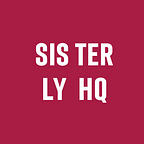Women Are No Saints
Written by Oluwabukunmi Fadeyi
Last year, I was riding in a friend’s car with two other friends in the backseat. We had to caution our friend to keep a safe gap between us and the car ahead of us because the driver was driving so dangerously.
We started an analysis of the driver’s carelessness because we were all so irritated. Throughout this analysis, we used the pronoun “he” because we were convinced that it was only a man who could drive that way. When traffic eased a little, we drove past this driver, and to our utter consternation, it was a young woman behind the wheel!
As if on cue, we all got upset at this discovery. How could a woman be such a careless driver? Aren’t women meant to be wiser than that? Shouldn’t the female gender’s tenderness and gentleness prevent her from being so reckless? We were livid!
Notice how we were just irritated when we assumed it was a man behind the wheel but became upset when we realized it was a woman? Each time I think about this incident, I feel as if the ground should open up and swallow me whole. I was so casually sexist, despite all my feminist values and beliefs…eww!
I swear, I’m a changed person now. Or should I say I’m changing because unlearning is a process that takes time? Now, when I hear that a woman did something wrong and I get upset, I check myself to make sure I’m upset because of the action, not because a woman was involved.
But why do we put women on a higher moral pedestal? Why is it more difficult, if not impossible, to justify or overlook certain behaviors in women than in men? Why do we hold women to a higher standard when it comes to disagreeable behavior?
Off the top of my head, I would say it’s the patriarchy and the patriarchal views in our society. In a patriarchal society, women are expected to be feminine, which is a code for gentle, meek, nurturing, modest, and so on.
What happened in the car with my friends and I was a result of our preconceived notions that women should be all sunshine, common sense, and rainbows. When we saw a woman veering off the path we had stereotypically created for her, we clutched our pearls and acted as though we had seen something new under the sun.
There’s this need to view women as frail, harmless damsels in distress who can’t hurt a fly or be on the wrong side of the law. Perhaps we can blame this on the thousands of movies and cartoons we watched as children that depicted women in this light. Or maybe it’s the books and religious teachings that tell us women are purer at heart, incapable of wrongdoing, and closer to God.
I have noticed that the discussions about gender equality tend to focus more on women’s ability to do as much good as men but rarely on their ability to do evil. If we agree that intelligence is not gender-biased, and women can do as much good as their male counterparts in any field, we should apply the same logic to evil.
No one is born with evil or good in them; we all learn these attributes as we grow older. I am fed up with the attempts to canonise women, and the idea that to be a woman is to be kind, gentle, jovial, and incapable of wrongdoing.
Women are no saints — they are humans with the capability to do as much good or evil as any man.
Connect with Oluwabukunmi on Instagram, LinkedIn, and Twitter.
Edited by Chizulu E. Uwolloh
Zulu, named after Zulu Shofola, is a writer, avid movie watcher, and self-proclaimed bibliophile. She is proud to call herself a feminist and when she’s not editing for Sisterly HQ and watching travel vlogs on YouTube, she’s trying to save the world in her own little way. Connect with Zulu on Instagram and LinkedIn
Published by Titilope Adedokun
Titilope is on a mission to tell authentic stories of women and connect them with much-needed resources and opportunities. Connect with Titilope on LinkedIn and her personal website.
